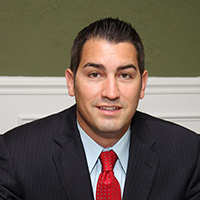Kelayres Criminal Lawyer, Pennsylvania
Sponsored Law Firm
-
 x
x

Click For More Info:
-
Law Office of Mark S. Guralnick
55 Madison Avenue 4th Floor Morristown, NJ 07960» view mapCriminal Defense Law Dedicated. Fearless. Successful.
Mark S. Guralnick and his legal team have helped clients throughout the USA and across the world by applying unparalleled dedication and hard work to each case.
800-399-8371
Jason Michael Rapa
✓ VERIFIEDCriminal, Credit & Debt, Personal Injury, Bankruptcy, Car Accident
Jason M. Rapa, Esquire, is a lawyer licensed and admitted to practice law in the State of Pennsylvania and before all three Pennsylvania Federal Court... (more)
FREE CONSULTATION
CONTACTLouis Joseph Mattioli
Government, Criminal, Accident & Injury
Status: In Good Standing Licensed: 21 Years
Edward Michael Olexa
Divorce & Family Law, Child Custody, Estate, Criminal, Car Accident
Status: In Good Standing Licensed: 18 Years
Andrew Jay Lentowski
Motor Vehicle, Estate, Criminal, Accident & Injury
Status: In Good Standing Licensed: 24 Years
 Mark Guralnick Morristown, NJ
Mark Guralnick Morristown, NJ AboutLaw Office of Mark S. Guralnick
AboutLaw Office of Mark S. Guralnick Practice AreasExpertise
Practice AreasExpertise

